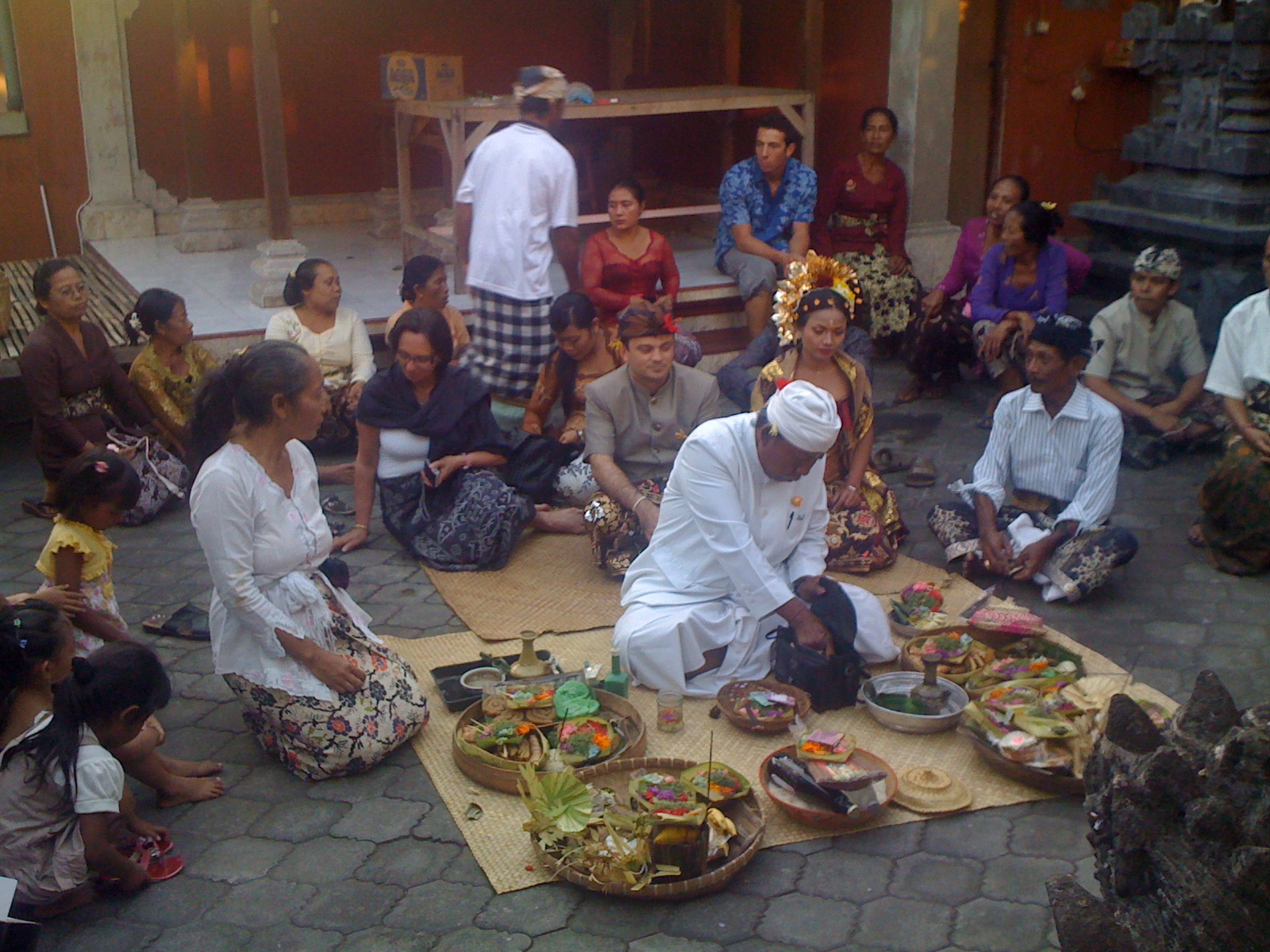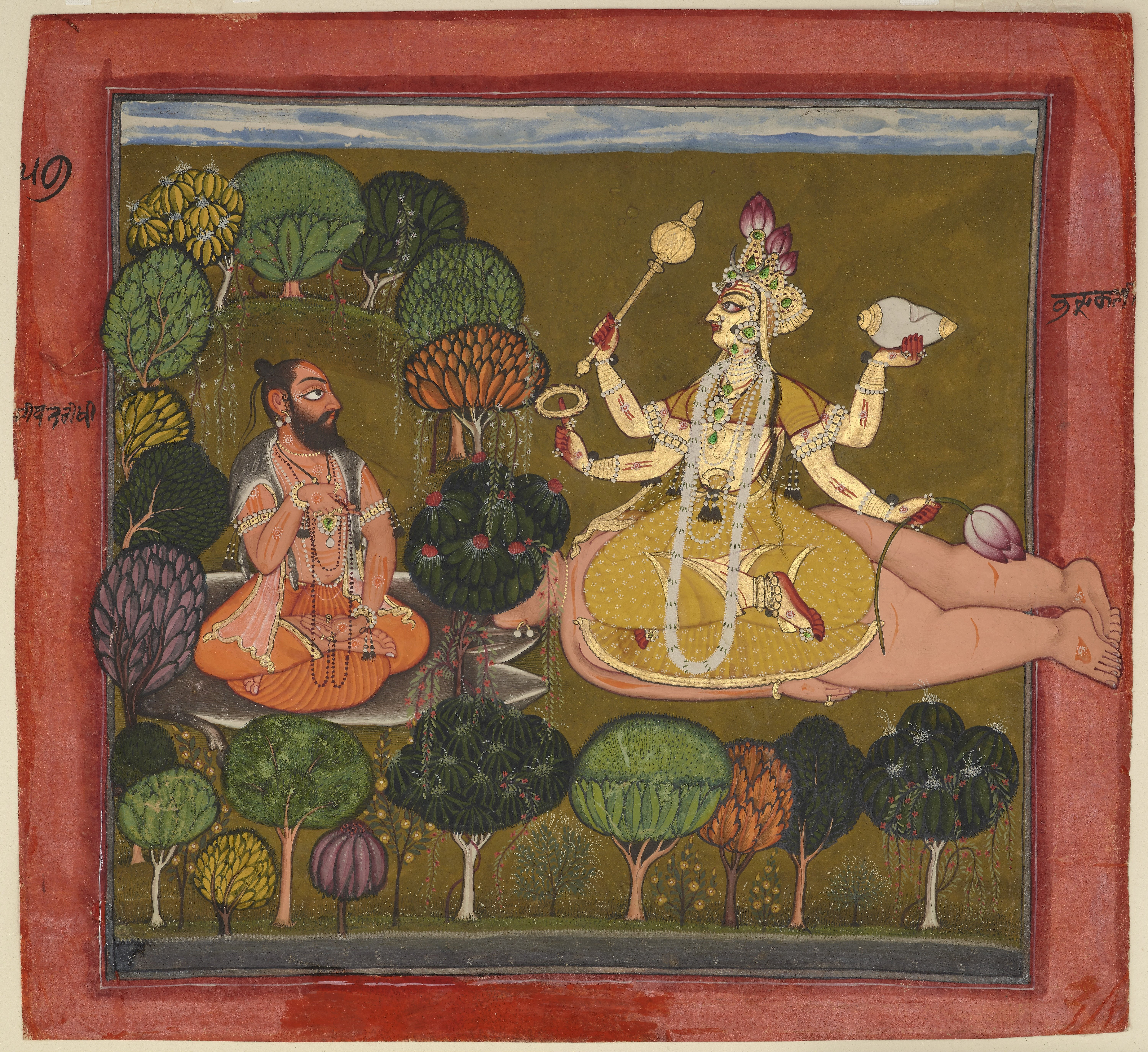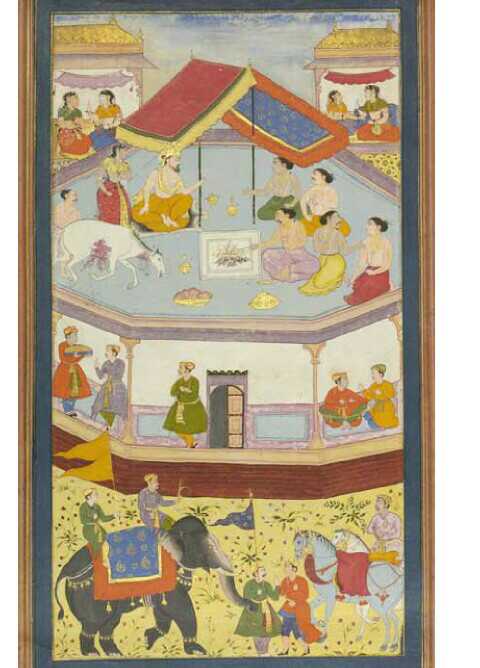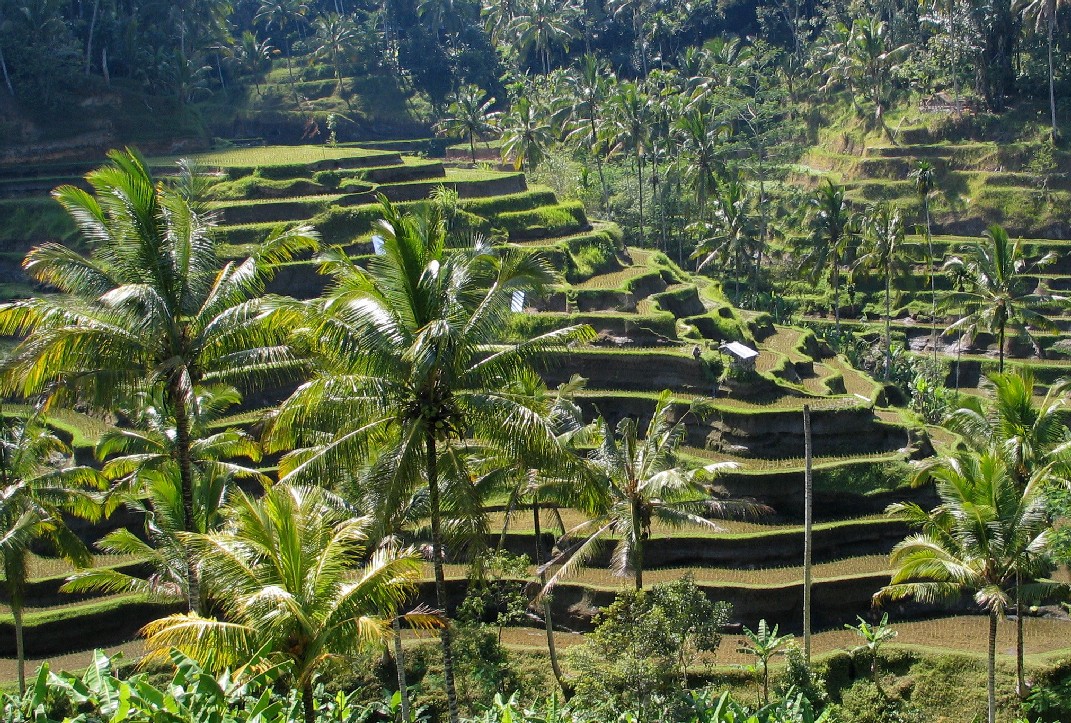|
Purohit
Purohita (), in the Hindu context, means ''chaplain'' or ''family priest'' within the Vedic priesthood. In Thailand and Cambodia, it refers to the royal chaplains. A ''tīrthapurohit'' is a priest/ritual performer (''purohit'') at a sacred site (''tīrtha''). Etymology The word ''purohita'' derives from the Sanskrit, ''puras'' meaning "front", and ''hita'', "placed". The word is also used synonymously with the word ''pandit'', which also means "priest". '' Tirtha purohita'' means the ''purohita'' who sit at the fords of the holy rivers or holy tanks and who have maintained the records of the forefathers of the Hindu family for thousands of years. ''Purohita'' can refer to a house priest. Another less-formal name for teerth purohits is ''panda'', which is derived from the word ''pandit'' (from the Sanskrit ''paṇḍita'', meaning "learned man"). Education In India, literate men from the Brahmin varna who desire to become ''purohitas'' receive special training both in theor ... [...More Info...] [...Related Items...] OR: [Wikipedia] [Google] [Baidu] [Amazon] |
Rajasthan
Rajasthan (; Literal translation, lit. 'Land of Kings') is a States and union territories of India, state in northwestern India. It covers or 10.4 per cent of India's total geographical area. It is the List of states and union territories of India by area, largest Indian state by area and the List of states and union territories of India by population, seventh largest by population. It is on India's northwestern side, where it comprises most of the wide and inhospitable Thar Desert (also known as the Great Indian Desert) and shares a border with the Pakistani provinces of Punjab, Pakistan, Punjab to the northwest and Sindh to the west, along the Sutlej-Indus River valley. It is bordered by five other Indian states: Punjab, India, Punjab to the north; Haryana and Uttar Pradesh to the northeast; Madhya Pradesh to the southeast; and Gujarat to the southwest. Its geographical location is 23°3' to 30°12' North latitude and 69°30' to 78°17' East longitude, with the Tropic of Can ... [...More Info...] [...Related Items...] OR: [Wikipedia] [Google] [Baidu] [Amazon] |
Vedic Priesthood
Priests of the Vedic religion are officiants of the ''yajna'' service. Yajna is an important part of Hinduism, especially the Vedas. Persons trained for the ritual and proficient in its practice were called ( ' regularly- sacrificing'). As members of a social class, they were generically known as 'sage' or 'seer'. Specialization of roles attended the elaboration and development of the ritual corpus over time. Eventually a full complement of sixteen 's became the custom for major ceremonies. The sixteen consisted of four chief priests and their assistants. Chief priests The older references uniformly indicate ' as the presiding priest, with perhaps only the ''adhvaryu'' as his assistant in the earliest times. The phrase "seven hotars" is found more than once in the Rigveda. Hymn 2.1.2 of Rigveda states it as follows, The above hymn enumerate the priests as the ', ', ', ''agnīdh'', ' (meaning the ''maitrāvaruna'') and ''adhvaryu''. Vedic ( Shrauta) yajnas are typicall ... [...More Info...] [...Related Items...] OR: [Wikipedia] [Google] [Baidu] [Amazon] |
Brahmin
Brahmin (; ) is a ''Varna (Hinduism), varna'' (theoretical social classes) within Hindu society. The other three varnas are the ''Kshatriya'' (rulers and warriors), ''Vaishya'' (traders, merchants, and farmers), and ''Shudra'' (labourers). The traditional occupation of Brahmins is that of priesthood (purohit, pandit, or pujari) at Hindu temples or at socio-religious ceremonies, and the performing of rite of passage rituals, such as solemnising a wedding with hymns and prayers.James Lochtefeld (2002), Brahmin, The Illustrated Encyclopedia of Hinduism, Vol. 1: A–M, Rosen Publishing, , page 125 Traditionally, Brahmins are accorded the supreme ritual status of the four social classes, and they also served as spiritual teachers (guru or acharya). In practice, Indian texts suggest that some Brahmins historically also became agriculturalists, warriors, traders, and had also held other occupations in the Indian subcontinent.GS Ghurye (1969), Caste and Race in India, Popular Prakasha ... [...More Info...] [...Related Items...] OR: [Wikipedia] [Google] [Baidu] [Amazon] |
Chaplain
A chaplain is, traditionally, a cleric (such as a minister, priest, pastor, rabbi, purohit, or imam), or a lay representative of a religious tradition, attached to a secular institution (such as a hospital, prison, military unit, intelligence agency, embassy, school, labor union, business, police department, fire department, university, sports club), or a private chapel. The term chaplaincy refers to the chapel, facility or department in which one or more chaplains carry out their role. Though the term ''chaplain'' originally referred to representatives of the Christian faith, it is now also applied to people of other religions or philosophical traditions, as in the case of chaplains serving with military forces and an increasing number of chaplaincies at U.S. universities. In recent times, many lay people have received professional training in chaplaincy and are now appointed as chaplains in schools, hospitals, companies, universities, prisons and elsewhere to work alongsi ... [...More Info...] [...Related Items...] OR: [Wikipedia] [Google] [Baidu] [Amazon] |
Ashvamedha
The Ashvamedha () was a horse sacrifice ritual followed by the Śrauta tradition of Vedic religion. It was used by ancient Indian kings to prove their imperial sovereignty: a horse accompanied by the king's warriors would be released to wander for a year. In the territory traversed by the horse, any rival could dispute the king's authority by challenging the warriors accompanying it. After one year, if no enemy had managed to kill or capture the horse, the animal would be guided back to the king's capital. It would be then sacrificed, and the king would be declared as an undisputed sovereign. The ritual is recorded as being held by many ancient rulers, but apparently only by two in the last thousand years. The most recent ritual was in 1741, the second one held by Maharajah Jai Singh II of Jaipur. The original Vedic religion had evidently included many animal sacrifices, as had the various folk religions of India. Brahminical Hinduism had evolved opposing animal sacrifices, ... [...More Info...] [...Related Items...] OR: [Wikipedia] [Google] [Baidu] [Amazon] |
Kalpa (Vedanga)
Kalpa () means "proper, fit" and is one of the six disciplines of the Vedānga, or ancillary science connected with the Vedas – the scriptures of Hinduism. This field of study is focused on the procedures and ceremonies associated with Vedic ritual practice.James Lochtefeld (2002), "Kalpa" in The Illustrated Encyclopedia of Hinduism, Vol. 1: A–M, Rosen Publishing, , p. 339. The major texts of Kalpa Vedanga are called ''Kalpa Sutras'' in Hinduism. The scope of these texts includes Vedic rituals, rites of passage rituals associated with major life events such as birth, wedding and death in family, as well as personal conduct and proper duties in the life of an individual. Most Kalpasutras texts have experienced interpolation, changes and consequent corruption over their history, and Apasthamba Kalpasutra ancillary to the Yajurveda may be the best preserved text in this genre. Kalpa Sutras are also found in other Indian traditions, such as Jainism. Etymology Kalpa is a Sanskri ... [...More Info...] [...Related Items...] OR: [Wikipedia] [Google] [Baidu] [Amazon] |
Calcutta Review
The ''Calcutta Review'' is a bi-annual periodical, now published by the Calcutta University The University of Calcutta, informally known as Calcutta University (), is a Public university, public State university (India), state university located in Kolkata, Calcutta (Kolkata), West Bengal, India. It has 151 affiliated undergraduate c ... press, featuring scholarly articles from a variety of disciplines. History The ''Calcutta Review'' was founded in May 1844, by Sir John William Kaye and Reverend Alexander Duff. Through the journal, Sir John Kaye aimed "to bring together such useful information, and propagate such sound opinions, relating to Indian affairs, as will, it is hoped, conduce, in some small measure, directly or indirectly, to the amelioration of the condition of the people". The periodical proved to be successful, and was published as a quarterly up until 1912. Sir John Kaye was Editor of four issues, and then retired due to ill health. He remained the own ... [...More Info...] [...Related Items...] OR: [Wikipedia] [Google] [Baidu] [Amazon] |
University Of Calcutta
The University of Calcutta, informally known as Calcutta University (), is a Public university, public State university (India), state university located in Kolkata, Calcutta (Kolkata), West Bengal, India. It has 151 affiliated undergraduate colleges and 16 institutes in Kolkata and nearby areas. It was established on 24 January 1857 and is the oldest multidisciplinary university of Indian Subcontinent and Southeast Asian Region. Today, the university's jurisdiction is limited to a few districts of West Bengal, but at the time of its establishment it had a catchment area ranging from Kabul to Myanmar. It is accredited as an "A" grade university by the National Assessment and Accreditation Council (NAAC). The university has a total of fourteen campuses spread over the city of Kolkata and its suburbs. As of 2020, 151 colleges and 21 institutes and centres are affiliated with CU. The university was fourth in the Indian University Ranking 2021 list, released by the National Institu ... [...More Info...] [...Related Items...] OR: [Wikipedia] [Google] [Baidu] [Amazon] |
Ritual
A ritual is a repeated, structured sequence of actions or behaviors that alters the internal or external state of an individual, group, or environment, regardless of conscious understanding, emotional context, or symbolic meaning. Traditionally associated with gestures, words, or revered objects, rituals also occur in non-human species, such as elephant mourning or corvid object-leaving. They may be prescribed by tradition, including religious practices, and are often characterized by formalism, traditionalism, rule-governance, and performance. Rituals are a feature of all known human societies. They include not only the worship rites and sacraments of organized religions and cults, but also rites of passage, atonement and ritual purification, purification rites, oaths of allegiance, dedication ceremonies, coronations and presidential inaugurations, marriages, funerals and more. Even common actions like handshake, hand-shaking and saying "hello" may be termed as ''rituals''. Th ... [...More Info...] [...Related Items...] OR: [Wikipedia] [Google] [Baidu] [Amazon] |
Hermann Kulke
Hermann Kulke (born 1938 in Berlin) is a German historian and Indologist, who was professor of South and Southeast Asian history at the Department of History, Kiel University (1988–2003). After receiving his PhD in Indology from Freiburg University in 1967, he taught for 21 years at the South Asia Institute of Heidelberg University (SAI). He was a founding member of the Orissa Research Project (ORP) of the Southasia Institute (1970–1975), and was coordinator of the second ORP. Specialization: pre-colonial South and Southeast Asian History; early state formation and historiography; regional cultures of India with emphasis on Orissa; Indianization of Southeast Asia and Indian Ocean Studies. He was a visiting professor at Utkal University, Bhubaneswar (1978–1979), Asiatic Society, Calcutta (1986), and Jawaharlal Nehru University, Delhi (1992). He was also the Fellow of the Institute of Southeast Asian Studies, in Singapore (1987) and of the Asia Research Institute of t ... [...More Info...] [...Related Items...] OR: [Wikipedia] [Google] [Baidu] [Amazon] |
Guru
Guru ( ; International Alphabet of Sanskrit Transliteration, IAST: ''guru'') is a Sanskrit term for a "mentor, guide, expert, or master" of certain knowledge or field. In pan-Indian religions, Indian traditions, a guru is more than a teacher: traditionally, the guru is a reverential figure to the disciple (or ''wikt:शिष्य, shisya'' in Sanskrit, literally ''seeker [of knowledge or truth'']) or student, with the guru serving as a "counsellor, who helps mould values, shares experiential knowledge as much as Knowledge#Hinduism, literal knowledge, an Role model, exemplar in life, an inspirational source and who helps in the spiritual evolution of a student". Whatever language it is written in, Judith Simmer-Brown says that a tantra, tantric spiritual text is often codified in an obscure twilight language so that it cannot be understood by anyone without the verbal explanation of a qualified teacher, the guru. A guru is also one's spiritual guide, who helps one to discover the ... [...More Info...] [...Related Items...] OR: [Wikipedia] [Google] [Baidu] [Amazon] |
Bali Hindu Wedding Indonesia
Bali (English:; Balinese language, Balinese: ) is a Provinces of Indonesia, province of Indonesia and the westernmost of the Lesser Sunda Islands. East of Java and west of Lombok, the province includes the island of Bali and a few smaller offshore islands, notably Nusa Penida, Nusa Lembongan, and Nusa Ceningan to the southeast. The provincial capital, Denpasar, is the List of Indonesian cities by population, most populous city in the Lesser Sunda Islands and the second-largest, after Makassar, in Eastern Indonesia. Denpasar metropolitan area is the extended metropolitan area around Denpasar. The upland town of Ubud in Greater Denpasar is considered Bali's cultural centre. The province is Indonesia's main tourist destination, with a significant rise in Tourism in Bali, tourism since the 1980s, and becoming an Indonesian area of overtourism. Tourism-related business makes up 80% of the Bali economy. Bali is the only Hinduism in Indonesia, Hindu-majority province in Indonesia, ... [...More Info...] [...Related Items...] OR: [Wikipedia] [Google] [Baidu] [Amazon] |








